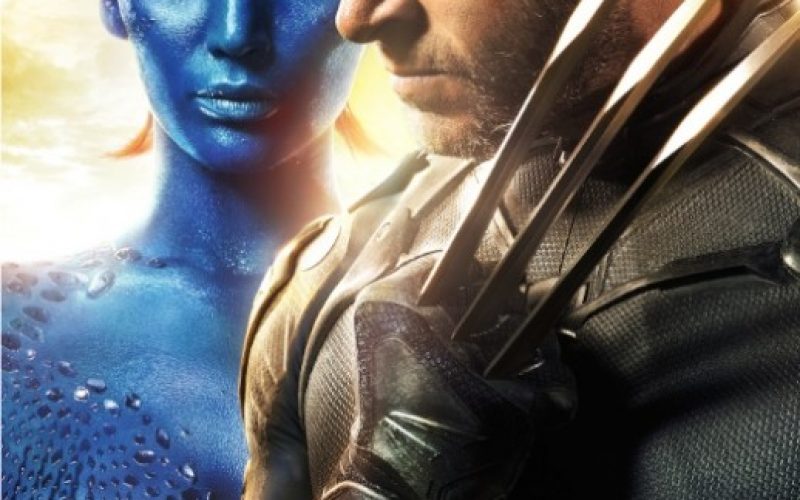X-Men: Days Of Future Past (DoFP), the seventh film in the franchise, strives to do what comic book movies rarely try anymore: to be fun. Out of the gate, DoFP hits us with a fantastic and jarring fight sequence, tearing away our expectations of what we came to see, and laying it out flat that we are not prepared.
As I’ve said many times, there’s been no better moment in history to be a nerd or geek than right now. Studios are listening to fans, employing them. They are beginning to trust us, as viewers, to be able to keep up with the hugely-far-fetched logic that exists inside comic books. The girl that phases through walls can also phase through time now? Okay, that’s fine. I can deal with that. There’s a rough logic to it, and it can be followed provided you suspend your disbelief just enough. Movie-goers should be perfectly fine with suspending disbelief. After all, one of the first big sci-fi films was about a giant ape attacking a city. The latest X-Men movie definitely requires that suspension, but there’s also an inherent sense of trust placed in the viewer by the filmmaker. This is our seventh time out with these mutants, and the filmmakers knew it, and acted accordingly.
It’s this trust that lets the movie free-wheel through time and space, to have wonderfully explosive, power-packed battle sequences immediately followed by moving interpersonal drama and character interaction. The X-Men, at their core in the comics, show us that despite their looks and powers or anything else that is outside the status quo, they are people, they deserve the same respect anyone does, and definitely don’t deserve to be hated on the sheer basis of being different.
In the comics, Days Of Future Past is a little more impactful than it was translated to screen. Humanity had turned against mutants in the biggest of ways. They had designed giant robots capable of detecting the “X-Gene,” the fundamental difference in mutant biology, and would round them up or outright kill them. The ones who were rounded up were given a tattoo tied directly to their DNA of an identifying M over their eye. They were then taken to a mutant Auschwitz, to await the inevitable. The holocaust analogy is given little more than five minutes of screentime, lessening it’s impact. In the cinematic reality, Sentinels turned against humanity as well, eventually being able to identify the recessive traits of the X-Gene, meaning they could detect if a mutant WOULD be born, even three generations removed. This meant bad things for humanity, and they allied themselves with the mutants. Adding in these factors actually worked for the movie, as very little of humanity’s animosity toward mutants had been shown in the previous films. Where “X2” had military roundups of schoolchildren, all of whom inevitably escaped, the comics have had school buses blown up by religious extremists, and X-kids killed and crucified on the front lawn. Humanity’s stance on mutants hasn’t ever been that extreme in the movies, and taking it to that extreme would have left a lot of people asking what, and why any of this was happening.
Time travel is a difficult school of thought at best, even more so when you try to adapt it believably to a movie or TV show. Often, we can accept the ludicrous and move on, which is why so many people over the world tune in to see a Brit fly a Police Box. Other times, fans endlessly pick apart and try to deconstruct the time shenanigans, as in the Terminator franchise, which has so many holes in it, it’s basically a wiffle-reality at this point. X-Men tries to walk a line in between the two, offering enough explanation to get us past the wibbly-wobbly of it all, but not enough detail so we lose ourselves finding every single crack, of which there are many, it just doesn’t matter. DoFP picks up so quickly, and takes you through this wonderful story so fast, that other than maybe one occasion, there’s no desire to ask more questions, and by the end of the movie, you are so grateful for the outcome that you’ve forgiven and forgotten any obvious holes in the whole time travel thing.
The world of X-Men has always been rich in characters, and DoFP mines that history better than any other X-Men film. Bishop, a newcomer to the franchise but a fan-favorite of the books, is a time-traveler who came back to warn the X-Men of impending disaster and betrayal, which would lead to the future seen in DoFP, of concentration camps and killer robots. In the film, there is zero hint that Bishop is anything more than another of Xavier’s students. The film trusts its fans to fill in the blanks once again. Sunspot, Quicksilver, Blink, Ink, Spyke; All new mutants, all make brief power-based cameos. Blink, the future team’s teleporter, and Quicksilver, the past team’s speed demon, inject an energy into their scenes that make them totally unforgettable, and leave you wanting more of both.
In the end, Days Of Future Past managed to meld two universes into something cohesive, undid the mistakes of the past and set a course for the future. X-Men exists as almost a universe unto itself INSIDE the comics, it was only natural this translate to the films.
X-Men Days Of Future Past is in theaters now.




